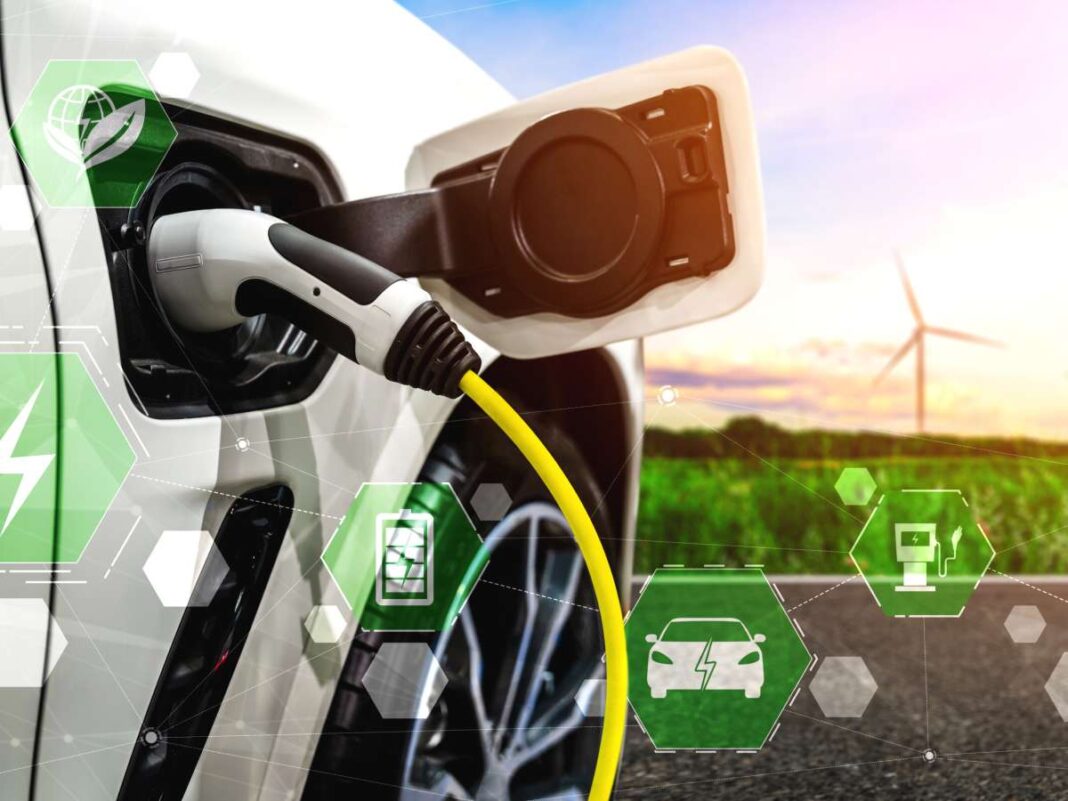In a world increasingly conscious of environmental impact, electric vehicles (EVs) are emerging as a key player in the journey towards sustainability. By offering a cleaner, more efficient alternative to traditional internal combustion engines, EVs are revolutionizing the way we think about transportation and its role in the environment.
The Environmental Benefits of Electric Vehicles
Electric vehicles are significantly reducing greenhouse gas emissions and improving urban air quality. Unlike traditional vehicles, EVs produce zero tailpipe emissions, meaning they don’t emit pollutants contributing to poor air quality and health issues. Cities with higher adoption rates of EVs have already seen significant reductions in nitrogen dioxide levels and noticeable improvements in air quality.
EVs are not only energy-efficient but also capable of leveraging renewable energy sources, allowing them to achieve an even lower carbon footprint compared to conventional vehicles. This aligns perfectly with international climate agreements, such as the Paris Agreement’s goals to limit global warming to 1.5 degrees Celsius. Countries like the UK and Norway have ambitious EV adoption plans, including bans on petrol and diesel cars and transitioning entirely to zero-emission vehicle sales by specific target years.
However, the production of EVs, particularly the manufacturing of lithium-ion batteries, is energy-intensive and associated with environmental concerns. Advancements in technology and recycling are addressing these issues, with new solutions and processes being developed to lower emissions and enhance the ethical sourcing of materials. EVs continue to advance through overcoming price barriers, technology limitations, and infrastructure challenges.
Socioeconomic Advantages of EV Adoption
Beyond environmental benefits, EVs offer significant socioeconomic advantages. They are cheaper to maintain and operate than internal combustion engine vehicles, with lower fuel and maintenance costs. Additionally, government incentives and grants, such as tax benefits for EV purchases, further reduce costs.
For businesses, adopting EVs can enhance their brand image, as consumers increasingly favor companies committed to environmental sustainability. Using EVs can enhance the brand image as consumers increasingly favor companies committed to environmental sustainability.
Technological Advancements and Infrastructure Development
The successful growth of EVs heavily depends on expanding robust charging infrastructure. Governments and private sector companies are investing heavily in charging networks, addressing concerns like range anxiety—the fear of running out of battery without finding a charging station. Several global initiatives focus on comprehensive charging coverage across urban, regional, and remote areas.
Moreover, innovations in battery technology are pivotal for increasing range, reducing charging time, and lowering costs. Battery manufacturers are exploring new chemistry and scalable production methods to meet these needs. Advanced battery technology, pivotal for increasing range, reducing charging time, and lowering costs, requires continued innovation.
Challenges and Innovations
Despite the promise of EVs, several challenges remain. The upfront cost of EVs can deter buyers, although subsidies, incentives, and future economies of scale promise affordability in the coming years. Consumer awareness campaigns, test drive opportunities, and partnerships with influencers are crucial for dispelling misconceptions and fostering trust in EVs.
Additionally, concerns about charging infrastructure are being mitigated by the increasing network of public and private charging stations and technological advancements leading to faster charging times. Technological advancements leading to faster charging times are complementing the growing network of charging stations, making EV adoption more feasible.
The Future of Electric Vehicles in Sustainable Transportation
Electric vehicles are instrumental in combating climate change, enhancing air quality, and reducing dependence on fossil fuels. As governments, corporations, and consumers unite to embrace EVs, the road ahead appears promising. By driving change toward zero-emission transportation, the world moves closer to a sustainable, greener future. Electric vehicles are pivotal in driving global environmental sustainability and achieving cleaner air and energy efficiency.
Businesses looking to transition to EVs can reduce their carbon footprint, enjoy financial benefits, and improve their corporate image. Overall, while adopting EVs involves initial consideration, the long-term benefits for businesses are substantial in terms of sustainability, cost savings, and brand reputation. Overall, while adopting EVs involves initial consideration, the long-term benefits for businesses are substantial in terms of sustainability, cost savings, and brand reputation.
Leading the Charge: How You Can Join the Movement
Adopting an electric vehicle is now more accessible than ever. With a variety of models available, from compact cars to luxury sedans and SUVs, there’s an EV to suit every lifestyle. Manufacturers like Tesla, Nissan, and Chevrolet offer options that combine performance, efficiency, and style.
Government incentives and rebates can further reduce the cost of purchasing an EV. Visit your local dealership or manufacturer’s website to explore options and take the first initiative towards a sustainable future.
Conclusion
The transition towards electric vehicles is more than a trend; it’s a significant movement towards a more sustainable future. Embracing EVs helps one contribute to reducing emissions and combating climate change and paves the way for technological advancements and economic benefits. The journey towards green living is accelerating, and electric vehicles are leading the charge.

